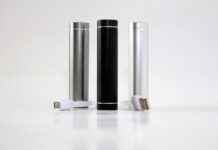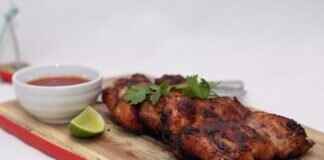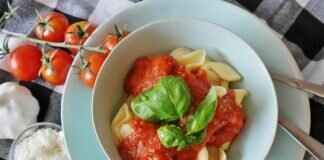This article explores the top electric bikes for commuters, highlighting their features, benefits, and how they can enhance your daily travel experience while saving time and money.
Why Choose an Electric Bike for Commuting?
Electric bikes, or e-bikes, provide a convenient and eco-friendly alternative to traditional commuting methods. They offer speed, flexibility, and ease of use, making them ideal for urban environments. Commuters can navigate through traffic with ease while reducing their carbon footprint.
Top Features to Look for in Commuter Electric Bikes
- Battery Life and Range: A reliable battery is crucial. Understanding the range of an electric bike helps ensure it meets your daily travel needs without frequent recharging.
- Motor Power and Performance: The motor’s wattage directly influences the bike’s speed and hill-climbing ability, making higher wattage models preferable for urban settings.
- Comfort and Ergonomics: Look for features like adjustable seats and handlebars to enhance your riding experience.
- Weight Considerations: Lighter models are often more convenient for commuters who need to carry their bikes.
Affordability: Finding the Best Value Electric Bike
Cost is a crucial factor when choosing an electric bike. Balancing features and price can help you find the best value for your commuting needs. Many budget-friendly options offer great features without breaking the bank.
Safety Features for Commuting
- Braking Systems: Effective braking systems, such as disc brakes, provide better stopping power.
- Lighting and Visibility: Good lighting and reflective materials increase visibility during low-light conditions.
Maintenance Tips for Electric Bikes
Regular maintenance is essential for keeping your electric bike in optimal condition. Proper battery care and routine checks can prevent significant issues.
Conclusion: Choosing the Right Electric Bike for You
Selecting the best electric bike for commuting involves considering various factors, including features, comfort, price, and safety. Making an informed choice can greatly enhance your daily travel experience.

Why Choose an Electric Bike for Commuting?
Electric bikes are rapidly becoming a popular choice for commuters seeking a convenient and eco-friendly alternative to traditional transportation methods. With urban congestion on the rise, electric bikes offer a viable solution that combines speed, flexibility, and ease of use.
One of the primary advantages of electric bikes is their ability to significantly reduce travel time. Unlike cars, which can be stuck in traffic, electric bikes can navigate through narrow streets and bike lanes, allowing riders to bypass congestion. This not only saves time but also makes commuting more enjoyable.
Furthermore, electric bikes are designed with user-friendly features that cater to a wide range of riders. Many models come equipped with adjustable seats, intuitive controls, and powerful motors that make riding effortless, even for those who may not be regular cyclists. This accessibility encourages more people to consider biking as a daily commuting option.
In addition to their practical benefits, electric bikes are also a more sustainable choice. They produce zero emissions during operation, which contributes to improved air quality in urban areas. By opting for an electric bike, commuters can play a part in reducing their carbon footprint and promoting a greener environment.
Moreover, the cost-effectiveness of electric bikes cannot be overlooked. With rising fuel prices and public transport fares, investing in an electric bike can lead to substantial savings over time. Commuters can avoid parking fees, fuel costs, and maintenance expenses associated with cars.
In conclusion, choosing an electric bike for commuting is an excellent decision for those looking to enhance their travel experience. With benefits ranging from time savings and ease of use to environmental sustainability and cost-effectiveness, electric bikes are a forward-thinking choice for modern commuters.

Top Features to Look for in Commuter Electric Bikes
When it comes to choosing an electric bike for daily commuting, several key features should be at the forefront of your decision-making process. These features not only enhance your riding experience but also ensure efficiency and comfort during your travels.
- Battery Life: A high-capacity battery is essential for ensuring that your bike can handle your daily commute without requiring frequent recharging. Look for models that offer a range suitable for your needs, ideally over 30 miles on a single charge.
- Motor Power: The motor’s wattage plays a significant role in the bike’s performance. A higher wattage motor can provide better acceleration and hill-climbing capabilities, making it easier to navigate urban landscapes.
- Weight: The weight of the bike affects not only its portability but also its overall performance. Lighter bikes are generally easier to handle, especially when maneuvering through traffic or carrying them onto public transport.
- Comfort: Comfort is paramount for daily commuting. Look for features such as adjustable seats, ergonomic handlebars, and a suitable frame design that allows for a relaxed riding posture.
- Suspension: A good suspension system can significantly improve your ride quality by absorbing shocks from uneven surfaces. This is particularly beneficial in urban areas where potholes and rough roads are common.
- Braking System: Safety is crucial, and a reliable braking system is a must. Consider electric bikes equipped with disc brakes for superior stopping power, especially in busy city environments.
- Lighting and Visibility: Ensure your bike has adequate lighting and reflective materials to enhance visibility during low-light conditions, making your rides safer at dawn or dusk.
In summary, when selecting an electric bike for commuting, prioritize features like battery life, motor power, weight, and comfort. Investing in a bike that meets these criteria can significantly enhance your daily travel experience, making it more enjoyable and efficient.
Battery Life and Range
are vital considerations for anyone looking to invest in an electric bike, especially for commuters. A dependable battery ensures that you can travel your daily routes without the constant worry of running out of power. Understanding the range of an electric bike is essential, as it directly affects how far you can go on a single charge.
Most electric bikes on the market today come equipped with lithium-ion batteries, known for their efficiency and longevity. These batteries typically offer a range between 20 to 70 miles on a single charge, depending on various factors such as terrain, rider weight, and assistance level. For daily commuters, this range is crucial. It allows for a comfortable round trip without the need for frequent recharging.
Additionally, it’s important to consider the charging time of the battery. Many modern electric bikes can be fully charged in 4 to 6 hours, making it feasible to charge overnight or during the workday. Some models even offer fast-charging options that can reduce this time significantly, allowing you to plug in during breaks and get back on the road quickly.
| Battery Type | Average Range | Charging Time |
|---|---|---|
| Lithium-Ion | 20 – 70 miles | 4 – 6 hours |
| Lead-Acid | 15 – 30 miles | 6 – 8 hours |
In summary, when selecting an electric bike, pay close attention to both the battery life and the range. A reliable battery not only enhances your commuting experience but also provides peace of mind, ensuring that you can reach your destination without interruption. Understanding these aspects will help you make an informed decision, leading to a more enjoyable and efficient commute.
Types of Batteries
When it comes to electric bikes, the choice of battery is crucial. Different battery types, such as lithium-ion and lead-acid, offer varying performance levels, which can significantly impact your riding experience. Understanding the pros and cons of each type can guide your selection process and help you make an informed decision.
| Battery Type | Pros | Cons |
|---|---|---|
| Lithium-Ion |
|
|
| Lead-Acid |
|
|
In summary, lithium-ion batteries are often preferred for their superior performance and longevity, making them ideal for regular commuters. However, lead-acid batteries can be a more budget-friendly option for casual riders or those who prioritize cost over weight and efficiency. Evaluating your commuting needs, budget, and riding habits will help you choose the right battery type for your electric bike.
Charging Time
is a crucial factor to consider when selecting an electric bike for commuting. The duration it takes to recharge an electric bike’s battery can significantly influence your daily travel schedule. Commuters often have tight timelines, and a lengthy charging period can lead to delays and inconvenience.
To ensure you make the most of your commuting time, it is advisable to look for electric bikes equipped with fast-charging capabilities. These advanced batteries can recharge to a significant percentage in a short amount of time, allowing you to quickly get back on the road. For instance, some models can achieve an 80% charge in just 2 to 4 hours, making them ideal for those who may need to top up their battery during the workday or after short rides.
Additionally, understanding the different types of battery technologies available can further help you make an informed decision. Lithium-ion batteries are the most common choice for electric bikes due to their efficiency and longevity. They typically offer faster charging times compared to older technologies like lead-acid batteries. This can be a game-changer for commuters who rely on their bikes for daily travel.
Moreover, consider the availability of charging stations in your area. Having access to public charging points can alleviate concerns about battery life and charging duration, allowing you to plan your routes more effectively. Many urban areas are increasingly accommodating electric bike users by installing dedicated charging stations.
In conclusion, when evaluating electric bikes for commuting, prioritize models with fast-charging capabilities and reliable battery technology. This will not only enhance your commuting experience but also minimize downtime, allowing you to arrive at your destination on time.
Motor Power and Performance
are critical factors to consider when selecting an electric bike, especially for commuters navigating urban landscapes. The wattage of the motor plays a significant role in determining both the bike’s speed and its capability to tackle hills. Generally, a higher wattage translates to enhanced performance, making it easier to accelerate and maintain speed, particularly in city environments where traffic and stop-and-go conditions are common.
Electric bikes equipped with motors that have a wattage of 500W or more are often favored by commuters. These bikes can effortlessly handle inclines and provide a boost when pedaling becomes strenuous. For instance, riding uphill or against strong winds can be significantly less daunting with a powerful motor, allowing riders to maintain a comfortable pace without excessive exertion.
| Motor Wattage | Performance Benefits |
|---|---|
| 250W | Ideal for flat terrains; suitable for casual rides. |
| 500W | Excellent for urban commuting; good for moderate hills. |
| 750W and above | Superior hill-climbing ability; fast acceleration; ideal for varied terrains. |
Furthermore, understanding the relationship between motor power and battery life is essential. A more powerful motor may consume more energy, which can lead to a shorter range if not paired with a sufficiently robust battery. Therefore, when considering an electric bike, it is crucial to balance motor wattage with battery capacity to ensure that your daily commuting needs are met without the inconvenience of frequent recharging.
In conclusion, motor power is a vital aspect of electric bike performance. Commuters should prioritize wattage according to their specific needs, taking into account local terrain and riding conditions. By making an informed choice, you can enhance your commuting experience, making it both efficient and enjoyable.

Comfort and Ergonomics for Daily Rides
A comfortable riding position is essential for daily commutes. The right ergonomics can transform your riding experience, making it more enjoyable and less taxing on your body. Features such as adjustable seats and handlebars play a significant role in achieving this comfort.
When riding for extended periods, having the ability to customize your bike’s setup to fit your body can prevent discomfort and fatigue. Here are some critical aspects to consider:
- Adjustable Seats: A seat that can be raised or lowered ensures that your legs are at the right angle while pedaling. This adjustment helps in maintaining a proper posture, reducing strain on your back and knees.
- Handlebar Height: Adjustable handlebars allow you to find a position that suits your riding style. Whether you prefer a more upright position for comfort or a lower stance for speed, having this flexibility can enhance your overall experience.
- Grip and Padding: Look for handlebars with good grips and padded seats. These features can significantly reduce vibrations and shocks from the road, making your ride smoother.
In addition to these features, consider the suspension system of the bike. A quality suspension can absorb shocks from bumpy roads, providing a more comfortable ride. This is especially important for urban commuters who frequently encounter potholes and uneven surfaces.
Furthermore, the weight of the bike is another factor that impacts comfort. Lighter bikes are easier to maneuver and carry, especially if you need to navigate stairs or public transport.
In conclusion, investing in an electric bike with adjustable features and a good suspension system can significantly enhance your daily commute. Prioritizing comfort and ergonomics not only improves your riding experience but also promotes better health and well-being.
Suspension Systems
play a crucial role in enhancing the comfort and performance of electric bikes, especially for urban commuters. A well-designed suspension system is essential for absorbing shocks and vibrations from uneven surfaces, which can significantly improve the overall riding experience.
When navigating through city streets filled with potholes and rough roads, a good suspension system can make a remarkable difference. It allows riders to glide over bumps and irregularities, reducing the impact on their bodies and providing a smoother ride. This is especially beneficial for those who commute daily, as it minimizes fatigue and discomfort during longer journeys.
There are two primary types of suspension systems found in electric bikes: front suspension and full suspension.
- Front Suspension: This type only absorbs shocks at the front wheel, making it a lighter and more cost-effective option. It is suitable for riders who primarily travel on paved roads with occasional bumps.
- Full Suspension: This system includes both front and rear suspension, offering maximum comfort and stability. It is ideal for those who frequently ride on uneven terrain or off-road conditions.
In addition to enhancing comfort, a quality suspension system also contributes to improved handling and control. Riders can maneuver more easily through traffic and navigate tight corners without losing stability. This aspect is particularly important for urban commuters who need to react quickly to changing road conditions.
Investing in an electric bike with a robust suspension system not only enhances the riding experience but also promotes safety. By reducing the impact of bumps, riders can maintain better traction and control, which is vital for avoiding accidents.
In conclusion, a good suspension system is not just a luxury; it is a necessity for urban commuters. By absorbing shocks and providing a smoother ride, it significantly enhances comfort, safety, and overall performance, making daily commutes more enjoyable.
Weight Considerations
The weight of an electric bike is a crucial factor that significantly impacts its portability and overall usability, especially for commuters who often navigate through busy urban environments. When choosing an electric bike, understanding how weight affects your daily commute is essential.
For many riders, the ability to carry the bike up stairs or onto public transport can be a deciding factor. Lighter models are typically easier to handle, making them a popular choice among commuters. If you find yourself frequently needing to lift your bike, a weight of around 40 pounds or less is generally considered manageable for most individuals.
In contrast, heavier electric bikes, while often equipped with more powerful motors and larger batteries, can be cumbersome. If you have to transport your bike regularly, consider the following:
- Material: Bikes made from lightweight materials like aluminum or carbon fiber can significantly reduce overall weight without sacrificing strength.
- Frame Design: A compact frame can enhance portability, making it easier to maneuver in tight spaces.
- Battery Placement: The positioning of the battery can affect the bike’s balance and ease of lifting. A well-placed battery can contribute to a more balanced ride.
Moreover, lighter bikes can facilitate a more enjoyable riding experience. They allow for quicker acceleration and easier handling, which is particularly beneficial when navigating through traffic or making quick stops. Additionally, a lighter bike can help reduce fatigue during longer rides, making your commute more pleasant.
In conclusion, when selecting an electric bike, it is vital to consider how its weight will affect your commuting needs. A lightweight model may offer the best balance of convenience and performance, ultimately enhancing your daily travel experience.
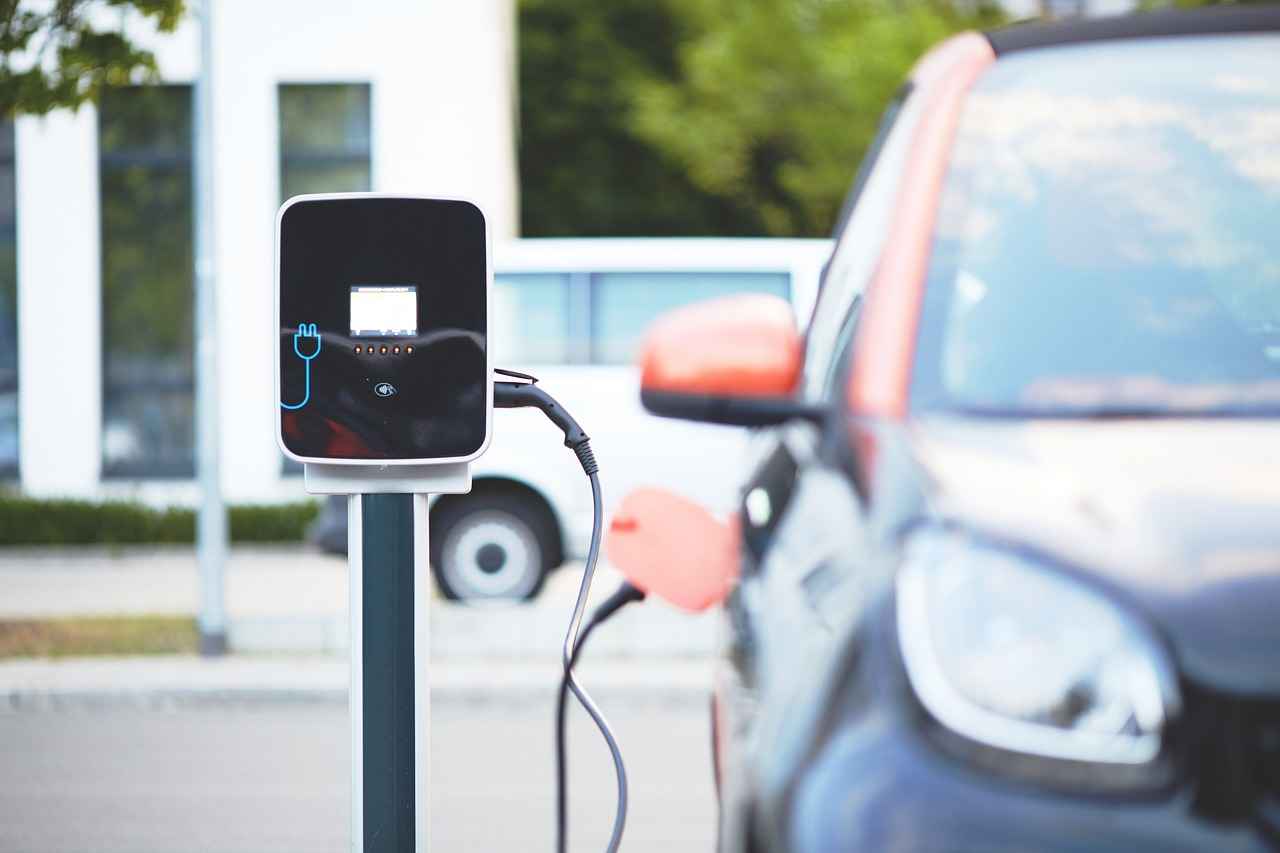
Affordability: Finding the Best Value Electric Bike
When it comes to selecting an electric bike, cost is undeniably a significant factor. With a wide range of options available, it’s essential to strike a balance between features and price to ensure you get the best value for your commuting needs. Let’s explore how to navigate this critical aspect of your electric bike purchase.
First and foremost, understanding your budget is crucial. Electric bikes can range from a few hundred to several thousand dollars. Therefore, it’s vital to identify your financial limits before diving into the market. This will help narrow down your choices and prevent overspending.
Next, consider the essential features that matter most to you. For instance, if you plan to use your bike for daily commutes, prioritize features like battery life, motor power, and comfort. Bikes with longer battery ranges may come at a higher price, but they can save you money in the long run by reducing the need for frequent charging.
| Feature | Importance | Cost Impact |
|---|---|---|
| Battery Life | Essential for long commutes | Higher quality batteries increase price |
| Motor Power | Affects speed and hill climbing | More powerful motors usually cost more |
| Weight | Influences portability | Lighter bikes may be pricier |
Additionally, look for budget-friendly options that offer great features without compromising quality. Many brands provide reliable electric bikes at competitive prices. Researching these options can help you find models that fit your needs without breaking the bank.
Investing in an electric bike can lead to long-term savings. By eliminating fuel costs, reducing maintenance expenses, and avoiding public transportation fees, you can recoup your initial investment over time. Thus, while the upfront cost may seem daunting, the financial benefits can be substantial.
In conclusion, finding the best value electric bike requires careful consideration of your budget and the essential features that align with your commuting lifestyle. By focusing on affordability and long-term savings, you can make an informed decision that enhances your daily travel experience.
Budget-Friendly Options
When it comes to commuting, many individuals seek affordable electric bikes that combine quality and functionality without straining their wallets. With a myriad of choices available, it’s crucial to identify bikes that not only fit your budget but also provide excellent features for daily use. Here, we explore some of the best budget-friendly electric bikes that can enhance your commuting experience.
| Bike Model | Price Range | Key Features |
|---|---|---|
| Rad Power Bikes RadCity 5 Plus | Approximately $1,699 | 750W motor, adjustable seat, and integrated lights. |
| Aventon Level Commuter | Approximately $1,199 | 500W motor, 40 miles range, and a sleek design. |
| Ancheer 26” Electric Mountain Bike | Approximately $599 | 250W motor, lightweight frame, and dual disc brakes. |
Choosing an electric bike that fits your budget doesn’t mean compromising on quality. Many affordable models come equipped with features that cater to the needs of urban commuters. For instance, bikes like the Rad Power Bikes RadCity 5 Plus offer a powerful motor and essential accessories, making them ideal for daily travel.
Moreover, investing in an electric bike can lead to long-term savings. By eliminating the costs associated with public transportation or fuel, you not only enhance your commuting efficiency but also contribute positively to the environment.
As you explore your options, consider factors such as battery life, motor power, and comfort to ensure you select a bike that meets your commuting needs. Researching these budget-friendly options can lead to a more enjoyable and cost-effective commuting experience.
Long-Term Savings on Commuting
Investing in an electric bike is not just a trend; it represents a smart financial decision for commuters. Over time, the savings can be substantial, making it a worthwhile consideration for anyone looking to enhance their daily travel experience.
One of the most significant areas where electric bike owners see savings is in fuel costs. Traditional vehicles require gasoline or diesel, which can be quite expensive, especially with fluctuating fuel prices. In contrast, electric bikes use electricity, which is typically much cheaper than fuel. By switching to an electric bike, commuters can dramatically cut their monthly transportation expenses.
Additionally, maintenance expenses for electric bikes are generally lower than those for cars or motorcycles. Electric bikes have fewer moving parts, which means there is less that can go wrong. Routine maintenance costs, such as oil changes, brake replacements, and engine repairs, are virtually eliminated. Instead, you may only need to worry about tire replacements and battery care, which are far less expensive.
Moreover, public transportation fees can add up quickly, especially for those who rely on buses or trains for their daily commute. By opting for an electric bike, commuters can save on ticket costs, parking fees, and other related expenses. This shift not only saves money but also provides the added benefit of flexibility and convenience in navigating urban environments.
In summary, the long-term savings associated with investing in an electric bike encompass reduced fuel costs, lower maintenance expenses, and the elimination of public transportation fees. By making this switch, commuters can enjoy a more economical and environmentally friendly mode of transportation.

Safety Features for Commuting
When it comes to commuting, ensuring safety is paramount. Electric bikes, or e-bikes, have become increasingly popular among commuters due to their efficiency and eco-friendliness. However, their safety features are equally important, as they can significantly enhance the overall riding experience.
Braking Systems
One of the most critical safety features in electric bikes is the braking system. Effective braking systems, such as disc brakes, provide superior stopping power, especially in urban environments where sudden stops may be necessary. Riders should familiarize themselves with the different types of brakes available, including:
- Disc Brakes: Offer better performance in wet conditions.
- Rim Brakes: Generally lighter but less effective in adverse weather.
- Drum Brakes: Require less maintenance and provide consistent braking.
Lighting and Visibility
Another essential safety feature is the lighting system. Good lighting, including front and rear lights, is crucial for visibility, especially during low-light conditions such as early mornings or late evenings. Additionally, reflective materials on the bike and rider’s clothing can further enhance visibility. Here are some tips for improving safety through visibility:
- Invest in high-quality headlights and taillights.
- Wear reflective gear or accessories.
- Use bike reflectors to increase your presence on the road.
Helmet Use
While not a built-in feature of the bike, wearing a helmet is one of the simplest and most effective ways to ensure safety while commuting. Helmets can significantly reduce the risk of head injuries in case of accidents. Choosing a helmet that fits well and meets safety standards is essential for optimal protection.
Conclusion
In summary, safety should always be a top priority for any commuter using an electric bike. By focusing on critical safety features such as braking systems, lighting, and wearing helmets, riders can ensure a secure and enjoyable commuting experience.
Braking Systems
Braking Systems: A Key Component for Safety
When it comes to cycling, especially in urban environments, understanding the importance of effective braking systems is crucial. These systems not only enhance your control over the bike but also significantly increase your safety on the road. Among the various types of braking systems available, disc brakes stand out for their superior stopping power and reliability.
| Type of Brake | Description | Advantages |
|---|---|---|
| Disc Brakes | Utilizes a disc rotor and caliper for braking. | Better performance in wet conditions, consistent stopping power. |
| Rim Brakes | Brakes that grip the rim of the wheel. | Lightweight and easier to maintain. |
| Drum Brakes | Enclosed braking system that uses friction against a drum. | Less exposure to the elements, durable. |
In urban settings, where sudden stops may be necessary due to traffic or pedestrians, having a reliable braking system can make a significant difference. Disc brakes offer enhanced performance, especially in wet or slippery conditions, making them a preferred choice for many commuters. Understanding the different types of brakes available can empower cyclists to make informed decisions that directly impact their safety.
Moreover, regular maintenance of your braking system is essential. Ensure that brake pads are checked frequently and replaced when worn. This simple practice can prevent brake failure and ensure that your stopping power remains effective.
In conclusion, investing in a quality braking system, particularly disc brakes, can greatly enhance your cycling experience, providing both safety and confidence on the road. Remember, your brakes are your first line of defense against accidents, so choose wisely and maintain them diligently.
Lighting and Visibility
When it comes to riding electric bikes, particularly during low-light conditions such as early mornings or late evenings, ensuring optimal visibility is of utmost importance. Good lighting and the use of reflective materials can significantly enhance your safety on the road.
Firstly, investing in high-quality lights is essential. Front and rear lights not only illuminate your path but also make you more visible to other road users. Many electric bikes come equipped with built-in lights, but if yours does not, consider adding LED lights that can easily be attached. These lights are energy-efficient and can last for several hours, making them a reliable choice for daily commutes.
In addition to lighting, the use of reflective materials on your clothing and bike can greatly improve your visibility. Reflective vests, jackets, or even stickers can catch the light from vehicles, alerting drivers to your presence. This is especially crucial during dawn or dusk when natural light is limited.
Moreover, consider the environment in which you ride. Urban areas often have more ambient lighting, but rural or less populated areas may require additional measures to ensure you are seen. Always assess your surroundings and adjust your visibility strategies accordingly.
Lastly, remember that visibility is not just about lights and reflectors; it’s also about awareness. Stay alert to your environment, and make eye contact with drivers when possible. This proactive approach can help prevent accidents and ensure a safer riding experience.
In conclusion, prioritizing visibility through effective lighting and reflective materials is crucial for safe electric biking. By enhancing your visibility, you not only protect yourself but also contribute to a safer environment for all road users.
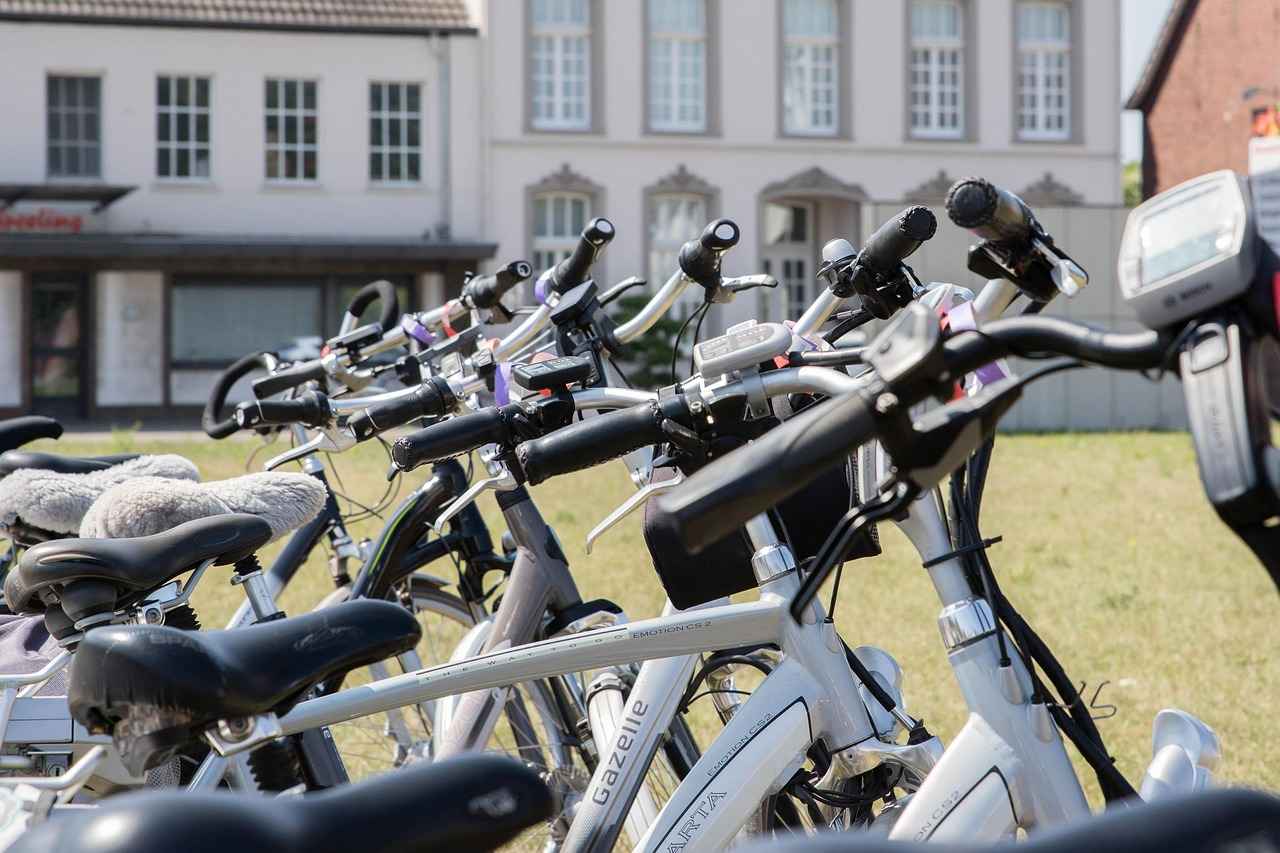
Maintenance Tips for Electric Bikes
Ensuring your electric bike remains in optimal condition requires a commitment to regular maintenance. By following a few simple care routines, you can significantly prolong the lifespan of your bike and enhance its overall performance. Here are some essential maintenance tips:
- Regular Cleaning: Keeping your electric bike clean is crucial. Use a damp cloth to wipe down the frame and components, and a gentle brush to remove dirt from the gears and chain. Avoid using high-pressure water, as it can damage electrical components.
- Battery Maintenance: The battery is the heart of your electric bike. Regularly check the battery connections for corrosion and ensure it is charged according to the manufacturer’s guidelines. Store the battery in a cool, dry place to prevent overheating.
- Tire Pressure Checks: Maintaining the correct tire pressure is vital for safety and efficiency. Check your tire pressure weekly and inflate them to the recommended PSI, which is usually found on the sidewall of the tire.
- Brake Inspection: Regularly inspect your brakes to ensure they are functioning correctly. Check the brake pads for wear and replace them if they are too thin. Adjust the brake cables if necessary to maintain proper tension.
- Gear and Chain Lubrication: A well-lubricated chain ensures smooth shifting and extends the life of your drivetrain. Clean the chain regularly and apply a suitable bike lubricant. Also, check the gears for any signs of wear or misalignment.
- Regular Tune-Ups: Consider scheduling regular tune-ups with a professional bike mechanic. They can identify potential issues before they become major problems, ensuring your bike remains safe and reliable.
By following these maintenance tips, you can enjoy a reliable and efficient electric biking experience. Remember, a little care goes a long way in keeping your bike in top shape!
Battery Care and Maintenance
is a critical aspect of owning an electric bike. Properly maintaining the battery not only ensures optimal performance but also significantly extends its lifespan. Here are some essential tips and guidelines to keep your electric bike’s battery in top condition.
- Regular Inspections: Conduct routine checks on your battery to identify any signs of wear or damage. Look for corrosion on terminals and ensure connections are secure.
- Follow Manufacturer Guidelines: Each battery comes with specific instructions from the manufacturer. Adhering to these guidelines regarding charging and storage can greatly enhance battery longevity.
- Optimal Charging Practices: Avoid letting your battery fully discharge before recharging. Instead, aim to keep it between 20% and 80% charged. This practice can prevent stress on the battery and prolong its life.
- Temperature Awareness: Batteries perform best at moderate temperatures. Avoid exposing your battery to extreme heat or cold, as this can negatively impact its performance and lifespan.
- Storage Considerations: If you plan to store your electric bike for an extended period, ensure the battery is charged to around 50%. This helps maintain its health during inactivity.
By implementing these practices, you can ensure that your electric bike’s battery remains healthy and functional for years to come. Regular maintenance not only saves you money in the long run but also enhances your overall riding experience.
In conclusion, taking care of your battery is essential for maximizing the efficiency and lifespan of your electric bike. By following these simple yet effective maintenance tips, you can enjoy a reliable and enjoyable commuting experience.
General Upkeep and Repairs
Regular maintenance is essential for ensuring that your electric bike operates at its best. By dedicating some time to routine checks and minor repairs, you can avoid more significant issues down the line. Below are some important aspects to consider for the upkeep of your electric bike:
- Tire Pressure: Maintaining the correct tire pressure is crucial for safety and efficiency. Under-inflated tires can lead to poor handling and increased battery consumption. Check the tire pressure regularly, ideally before each ride.
- Brake Checks: Your braking system is one of the most vital safety features on your bike. Regularly inspect the brakes for wear and ensure that they respond effectively. If you notice any issues, such as squeaking or reduced stopping power, it may be time to adjust or replace the brake pads.
- Chain Maintenance: A well-lubricated chain is essential for smooth operation. Clean the chain regularly and apply appropriate lubricant to prevent rust and wear. This simple step can significantly enhance your bike’s performance.
- Battery Health: Monitoring your battery’s condition can extend its lifespan. Ensure that connections are clean and secure, and follow the manufacturer’s guidelines for charging and storage. Avoid letting the battery completely discharge, as this can lead to permanent damage.
- Frame and Components Inspection: Periodically check the bike frame and components for any signs of damage or wear. Look for cracks, rust, or loose bolts, and address any issues promptly to maintain safety and performance.
In addition to these routine checks, having basic repair skills can be incredibly beneficial for commuters. Knowing how to fix a flat tire or adjust your brakes can save you time and ensure that you are not stranded due to minor issues.
By prioritizing maintenance and acquiring some fundamental repair skills, you can enjoy a smoother, safer commuting experience on your electric bike.

Conclusion: Choosing the Right Electric Bike for You
When it comes to selecting the best electric bike for commuting, it is essential to consider a variety of factors that can significantly impact your daily travel experience. Understanding these factors can help you make an informed decision, ensuring your bike meets your specific needs and preferences.
- Features: Look for essential features such as battery life, motor power, and weight. Each of these elements plays a crucial role in the bike’s performance and your overall comfort.
- Comfort: A bike that fits well and feels comfortable can make your commute more enjoyable. Pay attention to seat adjustments and handlebar height.
- Price: Establish a budget before you begin your search. Electric bikes come in a wide range of prices, so balancing quality and cost is vital.
- Safety: Ensure the bike has adequate safety features, including braking systems and lighting. These elements are crucial for safe commuting, especially in urban settings.
Additionally, consider the maintenance requirements of the bike. Regular upkeep can prolong the life of your electric bike and enhance its performance. Familiarizing yourself with basic maintenance tasks will save you time and money in the long run.
In conclusion, by carefully evaluating these factors—features, comfort, price, safety, and maintenance—you can select an electric bike that not only meets your commuting needs but also enhances your overall travel experience. Making an informed choice will ultimately lead to a more enjoyable and efficient daily commute.
Frequently Asked Questions
- What are the main benefits of using an electric bike for commuting?
Electric bikes offer a convenient way to navigate urban environments, saving you time and money. They provide an eco-friendly alternative to cars and public transport, allowing you to avoid traffic jams and reduce your carbon footprint.
- How do I choose the right electric bike for my needs?
When selecting an electric bike, consider factors like battery life, motor power, weight, and comfort. Think about your daily commute distance and the terrain you’ll be riding on to ensure you choose a bike that fits your lifestyle.
- How long does it take to charge an electric bike battery?
Charging times can vary based on the battery type and model, but many electric bike batteries can be fully charged in 4 to 6 hours. Look for models with fast-charging capabilities if you’re short on time!
- Are electric bikes safe to ride in urban areas?
Absolutely! Many electric bikes come equipped with essential safety features like reliable braking systems and good lighting. Always prioritize visibility and follow traffic rules to ensure a safe riding experience.
- What maintenance do electric bikes require?
Regular maintenance is key to keeping your electric bike in top shape. This includes checking tire pressure, ensuring brakes are functioning well, and properly maintaining the battery by following manufacturer guidelines.




